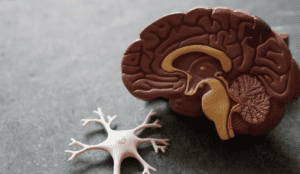- – Even though many play video games to relax, excessive gaming has been linked to anxiety and stress
- – Anxiety can arise from failure to complete a game – feeling guilty for “letting their teammates down”, and feeling lonely when playing on their own/solo
- – The emotional effects of gaming depend on how much you game, and what type of game you play
For many, gaming is an escape. A way to connect with new people around the world, or even to stimulate their minds after a long day of work. The effects of this are mixed including both negative and positive ones. However, like everything else, too much of anything is harmful to one’s health.
Many are aware of the negative physical effects of gaming including wrist-related injuries, compromised vision, neck problems, and more. But the emotional impacts are lesser-known, despite their high significance. One of the big ones is stress – A study found that violent games, in particular, invoked stress in gamers because the enemy was constantly killing the players. This stress even translated to higher levels of aggression in daily lives. Participants also tended to feel more impulsive in their actions, especially when it came to decision-making.
Furthermore, this stress also resulted in some feeling more anxious after gaming. A study found that participants sometimes felt that gaming was more anxiety-inducing than not, despite the main objective being the opposite. Where did such anxiety come from? Well, many participants said that it came from the failure to complete a game – and they ended up feeling guilty for “letting their teammates down”. If they ended up playing on their own, they felt more lonely. However, this effect was dependent on the type of the game and the duration they played the game.
What exactly did this stress do though? Once you feel stressed out after a game, your brain immediately sends messengers out to your adrenal gland (within your endocrine system) to release adrenaline into the body, which prepares your body for danger. This can be through increased heartbeat, and eventually slowing more important body processes to conserve all resources. However, prolonged stress and anxiety is when your body starts feeling the harmful effects – when it begins overcompensating on a daily basis. Your immune system will be compromised, and your organs may begin to experience structural damage. You’ll also begin to feel intense fatigue, due to being both mentally and physically drained.
Another emotional effect of gaming was loneliness. A study found that this was because players were more isolated from society as a whole, and thus felt more out of touch than before. Even though they were virtually playing with people around the world, the lack of physical presence and touch led to them feeling more alone. However, people that felt more alone in real life, found that gaming provided them some solace compared to before.
Constantly dwelling on what happened in the game and what could’ve happened had they changed the way they played is something that many feel post gaming. This type of overthinking has a domino effect on their daily lives because the lack of mindfulness prevents them from paying full attention to the task at hand.
With this in mind, try to take enough breaks while gaming and observe how you feel after a session, and be mindful of any negative signs. And as much as gaming is like an escape, it’s equally important to stay in touch with yourself mentally/physically in reality before entirely zoning out.






